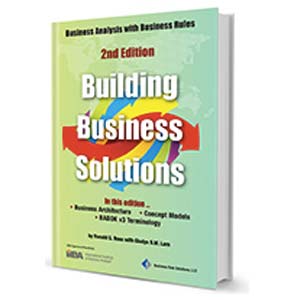Minding Your Business p's and q's
Did you ever have an expression that rolls around in your mind and makes less and less sense each time you listen to it? I've had one of those that's dogged me for decades: "You're nothing if not consistent." (I should offer a little background. This is how a girl I once dated -- not for very long -- described me. I'm fairly certain she was not paying me a compliment. No matter, it wouldn't have worked out anyway.)
Indulge me while I borrow a formal expression to analyze her statement. We will do this informally. (Yes, I know that's a bit of a contradiction, but stick with me -- I'm going somewhere with this.) From deductive logic, I will borrow the expression:
(OR (NOT p) q).
Let's ascribe the following meanings for p and q:
- Take p to mean "me."
- Take (NOT p) to mean "not me" -- in other words that "I don't exist." (Actually, I should say "false" instead of "I don't exist" -- but I did say this was informal.)
- Take q to represent the property "consistent."
Now let's "plug in" these values to the logical expression I gave above and see what we get:
(OR (I don't exist) consistent).
The OR in this case means that at least one of the two items listed in the expression must be true. I'm willing to stipulate that I do exist -- in other words, that "I don't exist" is false. This means that to satisfy the expression, the other item, "consistent," must be true. The only way "consistent" could be false would be if "I don't exist" is true. (In that case, my (in)consistency wouldn't really be an issue!)
Believe it or not, we have just stumbled onto the fundamental basis for business rules. Put simply, a rule is something that says that if one thing exists (or more formally, is true), then something else must exist (be true). When you say "an order must indicate the customer who places it," what you are really saying is "either the order doesn't exist, or it will show the customer" -- in other words:
(OR (NOT Order) Customer-who-places-it).
Actually, we didn't "just" stumble onto this. This magic expression for rules has its origin in formal logical, which goes back, depending on how you count, for hundreds or thousands of years. What I'm saying is that the business rule approach has its foundations directly in solid theory that some of the best minds of humankind have produced over many lifetimes of work.[1] I'd say that's not a bad way to go about minding your business's p's and q's. It's nothing if not powerful!
Notes
*/ ?>[1] Mr. Ross will be publishing an in-depth paper on
BRCommunity.com, "The Theory of Business Rules and the Basis for
Business Rule Notation," which explores this topic in depth.![]()
# # #
About our Contributor:
Online Interactive Training Series
In response to a great many requests, Business Rule Solutions now offers at-a-distance learning options. No travel, no backlogs, no hassles. Same great instructors, but with schedules, content and pricing designed to meet the special needs of busy professionals.










How to Define Business Terms in Plain English: A Primer
How to Use DecisionSpeak™ and Question Charts (Q-Charts™)
Decision Tables - A Primer: How to Use TableSpeak™
Tabulation of Lists in RuleSpeak®: A Primer - Using "The Following" Clause
Business Agility Manifesto
Business Rules Manifesto
Business Motivation Model
Decision Vocabulary
[Download]
[Download]
Semantics of Business Vocabulary and Business Rules